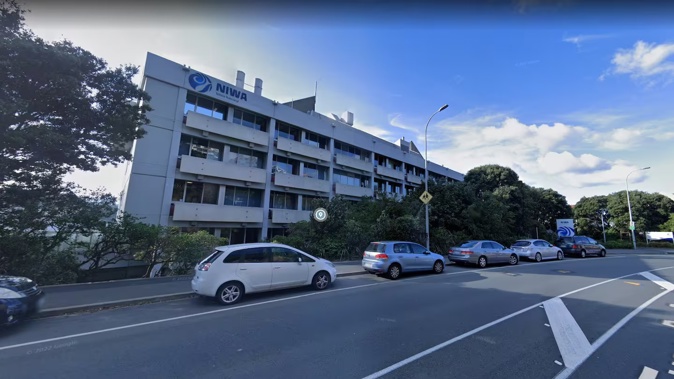
Frustrated Niwa staff have hit out at the Crown research institute’s senior management over a cost-cutting restructure criticised as untransparent and “piecemeal”.
In April, it was revealed up to 90 roles were proposed to go at Niwa – equivalent to about 13 per cent of its workforce – as the Crown-owned incorporated company undertook a review of its financial sustainability.
At the time, Niwa’s chief executive John Morgan said Niwa needed to reduce its costs in line with a reduction in revenue, while acknowledging it was a “very unsettling time” for staff.
Now, internal frustrations have boiled into the open with a critical open letter – purported to have been electronically signed by more than 250 staff - directed at ministers and Niwa’s executive and board.
The letter, since sent to the Herald, expressed a “significant lack of confidence” in senior management due to its approach to changes under the review.
It said there appeared to be a lack of transparency around the process, along with “poor understanding of its end-goal” and a lack of responsibility from senior management about their role in Niwa’s financial state.
It added the present round of restructuring had been undertaken “with no apparent overarching guiding document nor strategy”.

Niwa's RV Tangaroa. The Crown Research Institute employs 600 to 700 staff over more than a dozen sites around New Zealand. Photo / Dave Allen
Change proposals appeared to have been focused on specific projects ending, including linking position descriptions to projects rather than science groups within Niwa.
It’s understood a small team of top climate modellers are among those in the firing line, having received funding support through the now-finishing Deep South National Science Challenge.
The letter criticised Niwa’s leadership over a lack of regular updates, adding that poor transparency and “the piecemeal nature” of the process had “led to severe elements of stress and uncertainty” for staff.
The potential loss of long-time colleagues was having a “profound personal and professional impact” on many staff – and that the restructure’s impact on morale and productivity could last for “many more months to years”.
Further, the letter chastised management for decisions over big-ticket spending items in recent years, and what it described as a lack of forward-planning for the end of the decade-long science challenges.
This, along with the downturn and the stalling of local and central government contracts, had left the organisation particularly vulnerable to short-term changes in economic outlook, it said.
Niwa has declined to respond to the complaints in the letter, with a spokesperson today telling the Herald it would not be commenting further on review process and consultation while it was still under way.
Science, Innovation and Technology Minister Judith Collins said her office had received a copy of the letter.
“However, as this is an operational matter and therefore the responsibility of the Niwa Board, it would not be appropriate for me to comment.”
New Zealand Association of Scientists president Professor Troy Baisden said he was not surprised many Niwa staff had apparently signed the letter.

NZ Association of Scientists president Professor Troy Baisden. Photo / Supplied
“Cuts to nationally significant capability are being handled in a way that is outside international norms,” he said.
“They are likely to cause immediate and long-term damage to reputation and capability.”
More broadly, Baisden said the letter echoed wider concerns about funding for the sector, which had led to the formation of the just-launched Save Science Coalition.
“Our research system has had great potential but has embraced an unusual operating model for over 30 years,” Baisden said.
“We’re at a point where international recruitment to replace lost capability could be much more difficult.”
The association was damning of last week’s Budget - calling it a “worse than a nothing burger for science”.
It pointed out that, after a final Budget spend of $64m, there would be no further funding for the science challenges after this month.
There were also no support packages for Wellington institutions that would’ve benefited from the last Government’s $450m “Science City” programme – since cancelled by the coalition.
At this point, it’s not clear what will replace the science challenges, with the Government having also scrapped a major reform programme that was to have succeeded them.
Former chief science adviser Professor Sir Peter Gluckman has meanwhile been tasked with chairing separate groups advising on how the science and tertiary sectors can help boost the economy.
Baisden said the association hoped its recommendations would include better models for strategic science that served the nation, while helping to understand and manage our environment.
Jamie Morton is a specialist in science and environmental reporting. He joined the Herald in 2011 and writes about everything from conservation and climate change to natural hazards and new technology.
Take your Radio, Podcasts and Music with you









